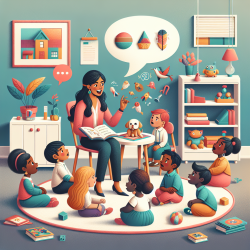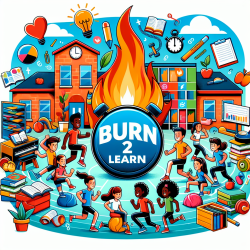In the realm of speech therapy, particularly for those of us specializing in educational settings, the quest for effective, engaging, and research-backed strategies is ongoing. A valuable resource in this pursuit is "Tales Have Been Told: Activities for Higher Level Syntax", a guide designed to address complex syntactical structures in upper elementary and higher school-age students. This blog post aims to share insights from the research and practical activities presented in the guide, encouraging further exploration and implementation in therapy practices.
Understanding Higher Level Syntax
Higher level syntax involves the comprehension and use of complex sentence structures beyond simple sentence forms. These structures are crucial for academic success and sophisticated communication. "Tales Have Been Told" specifically targets passive voice structures, adjectival clauses, and various text types, which are often challenging for students with language learning disabilities, ESL learners, and those recovering from neurological impairments.
Practical Strategies for Implementation
The guide is structured around nine lessons, each focusing on different aspects of higher level syntax through the use of folktales. This approach not only aids in grasping complex grammatical concepts but also enriches vocabulary and narrative skills. Here are some key strategies derived from the guide:
- Folktales as a Teaching Tool: Using stories from diverse cultures, therapists can introduce new syntactical structures within engaging narratives. This method aids in contextual learning and retention.
- Structured Activity Parts: Each lesson is divided into three parts, progressively building understanding and application of targeted structures. Activities range from story mapping to sentence formation exercises, providing a comprehensive learning experience.
- Visual and Hands-on Materials: The guide includes handouts and illustrations to accompany both the folktales and expository texts. These materials support visual learners and encourage interaction with the content.
- Adaptable Lessons: While the lessons are designed to be used collectively for a systematic approach, they can also be adapted or selected based on individual student needs, making the guide versatile for varied therapy contexts.
Benefits for Speech-Language Pathologists and Educators
One of the standout features of "Tales Have Been Told" is its adaptability and direct application to educational settings. Speech-language pathologists working in schools can collaborate with teachers to integrate these lessons into the curriculum, thereby supporting language development within the classroom environment. Additionally, the focus on higher level syntax addresses a critical need for students with language learning disabilities, providing them with the tools necessary for academic and social success.
Encouraging Further Research and Application
While "Tales Have Been Told" offers a wealth of practical activities and insights, it also highlights the importance of ongoing research and adaptation of therapy practices. Speech-language pathologists and educators are encouraged to not only implement these strategies but also to contribute to the evolving understanding of how best to support complex syntax development in students.
For those interested in exploring this valuable resource further, I highly recommend delving into the original research and practical guide. Tales have been told: Activities for Higher Level Syntax provides a foundation for enhancing therapy practices and ultimately, student outcomes.
In conclusion, "Tales Have Been Told: Activities for Higher Level Syntax" is a testament to the power of innovative, literature-based therapy approaches. By incorporating these strategies into our practices, we can provide more effective support for students struggling with complex syntactical structures, paving the way for their academic and communicative success.










